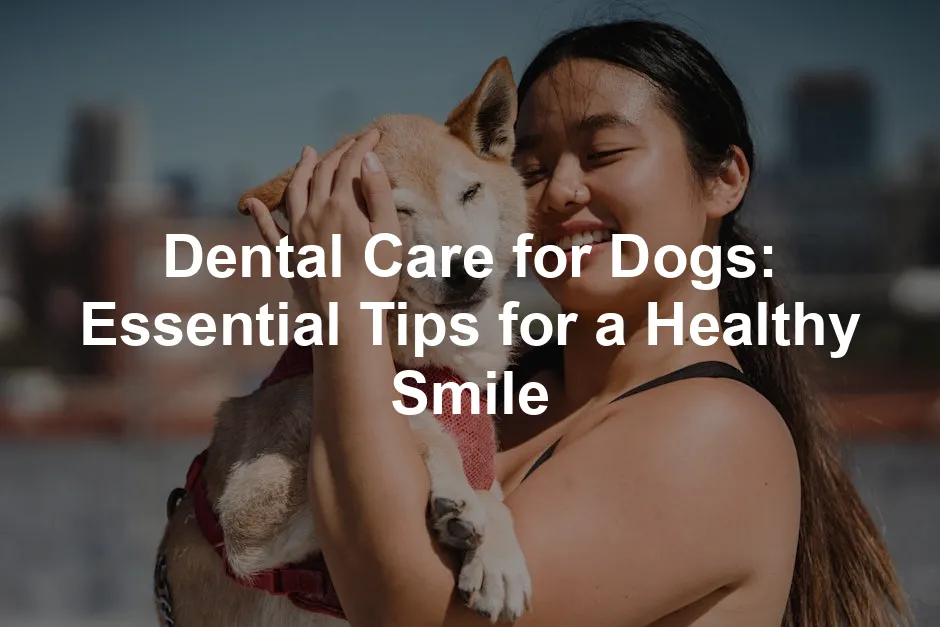Introduction
Dental care is vital for your dog’s health. Just like us, dogs can suffer from dental issues. Neglecting their teeth can lead to painful conditions and other health problems. Common dental problems include plaque buildup, gingivitis, and periodontal disease. These issues can affect their overall well-being and happiness.
Maintaining good oral hygiene offers numerous benefits. It prevents bad breath and keeps their teeth healthy. Plus, it can help avoid costly veterinary treatments down the line. Keeping your dog’s mouth clean is an essential part of responsible pet ownership.
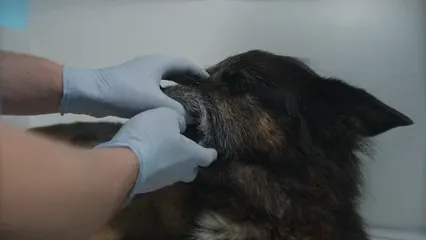
Summary and Overview
Good dental health is crucial for preventing systemic diseases. Poor oral hygiene can allow bacteria to enter the bloodstream, potentially harming vital organs. In fact, statistics reveal that around 80% of dogs show signs of periodontal disease by age three. This emphasizes the need for preventive care.
Effective dental care practices include regular teeth brushing, dental chews, and professional cleanings. It’s important to stay proactive about your dog’s dental health. Regular veterinary check-ups play a significant role in maintaining oral hygiene. These visits help catch potential issues early, ensuring your furry friend stays healthy and happy.

Best Practices for Dog Dental Care
Importance of Regular Dental Check-ups
Regular dental check-ups are essential for your dog’s health. Aim for annual visits to your veterinarian for dental exams. These visits help identify problems before they escalate. Be aware of signs indicating a need for a veterinary visit. Bad breath, swollen gums, and difficulty chewing are all red flags.
Statistics show that dental issues are common in pets. Many dogs experience some form of dental disease by the age of three. This makes early detection and intervention crucial. If you notice any concerning symptoms, don’t hesitate to reach out to your vet. Regular check-ups can help ensure your dog’s mouth remains in top shape.
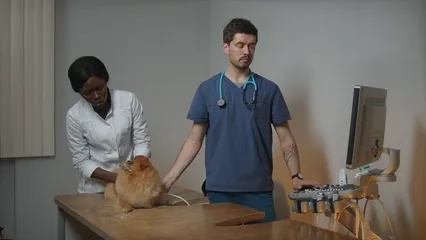
Daily Dental Care Routine
Establishing a daily dental care routine is crucial for your dog’s health. Just like humans, dogs can develop plaque and tartar that lead to serious dental issues. A consistent routine helps prevent bad breath and keeps their teeth healthy.
Brushing your dog’s teeth can be simple and effective. Start by using a toothbrush designed for dogs, paired with dog-safe toothpaste. Introduce the process gradually, allowing your dog to become comfortable. Use gentle circular motions, targeting all surfaces of the teeth. Don’t forget to praise your dog during and after brushing! Ideally, aim to brush your dog’s teeth daily for optimal results.
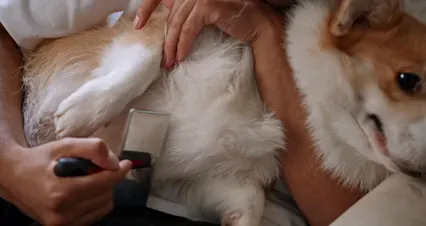
Choosing the Right Dental Products
When it comes to dental care products, variety is key. You’ll find toothpaste, toothbrushes, dental wipes, and more. Toothpaste specifically formulated for dogs is essential. Avoid human toothpaste, as it can be harmful to pets.
Selecting pet-safe products is vital. Always look for items that are free from harmful ingredients and have been tested for safety. Popular products like LILADENT Dental Care for Dogs or Virbac C.E.T. Oral Hygiene Kit are highly recommended by veterinarians. These ensure effective cleaning without compromising your pet’s health.

Dental Chews and Treats
Dental chews can greatly benefit your dog’s oral health. They help reduce plaque and tartar, while also freshening breath. Chewing naturally scrapes teeth clean, promoting better hygiene.
When selecting dental treats, look for those with the Veterinary Oral Health Council’s Seal of Acceptance. These products have been tested for their effectiveness in reducing plaque. Treats like OraVet Chewable Treats are a great choice. Always supervise your dog while enjoying these treats to ensure safety and prevent choking.

Diet and Dental Health
Your dog’s diet plays a crucial role in dental health. The right nutrition can prevent dental issues and promote overall well-being. A balanced diet supports strong teeth and healthy gums.
When considering dog food, the choice between dry and wet is important. Dry food often has a scrubbing effect on teeth. As dogs chew, the kibble helps remove plaque and tartar. This can lead to fresher breath and cleaner teeth. On the other hand, wet food may stick to teeth, increasing the likelihood of plaque buildup.
Veterinary dental diets are specifically designed to promote oral health. These diets contain unique ingredients that support dental hygiene. They often feature kibble shapes or textures that enhance cleaning while your dog chews. Talk to your vet about the best diet for your dog’s dental care needs.
Consider options like Purina Pro Plan Veterinary Diets Dental Health Formula or Merrick Grain-Free Texas Beef & Sweet Potato Recipe to ensure your dog gets the best nutrition for dental health.
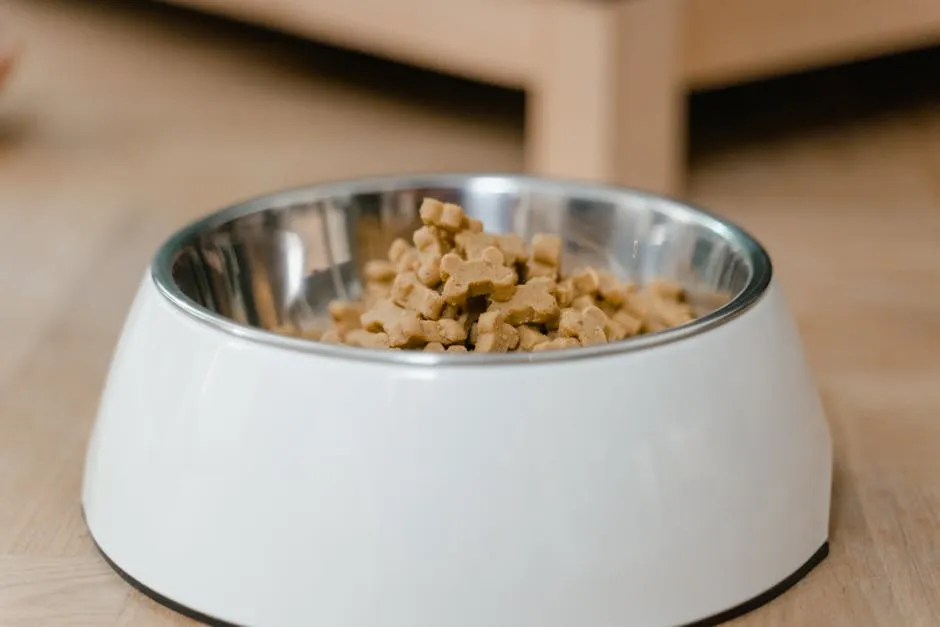
Understanding Dental Diseases in Dogs
Common Dental Problems
Many dogs face dental issues. Plaque buildup is one of the most common problems. This sticky film of bacteria forms on teeth and can lead to tartar if not removed. Tartar can cause gingivitis, an inflammation of the gums. Symptoms of gingivitis include red, swollen gums and bad breath.
If gingivitis progresses, it can lead to periodontal disease. This more severe condition affects the supporting structures of the teeth. You might notice symptoms like difficulty eating or loose teeth. Regularly checking your dog’s mouth is essential for early detection.
Untreated dental problems can have serious consequences. They can lead to systemic health issues. Bacteria from dental disease can enter the bloodstream. This may cause infections in vital organs, including the heart and kidneys. Keeping an eye on your dog’s dental health is crucial for their overall well-being.
Watch for signs like bad breath, swollen gums, and reluctance to eat. If you notice any of these symptoms, consult your veterinarian. Early intervention can save your dog from pain and costly treatments.
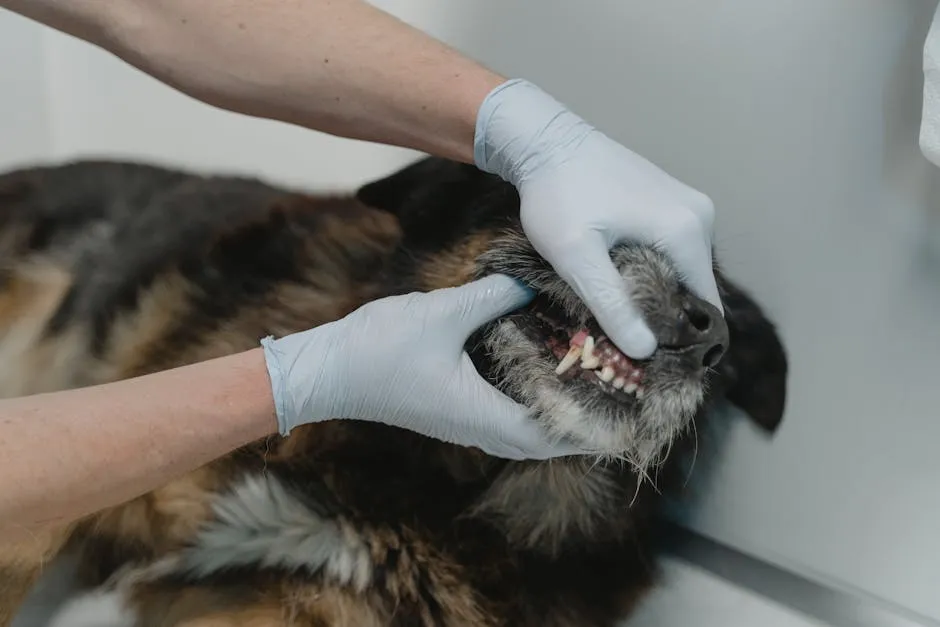
Importance of Early Detection and Treatment
Early detection is key in preventing severe dental diseases in dogs. Just like in humans, dental issues can escalate quickly. When caught early, many conditions can be treated effectively, sparing your dog from pain and suffering.
Veterinary care offers various treatment options. Regular cleanings can remove plaque and tartar buildup. In more severe cases, extractions may be necessary to alleviate pain and prevent further complications. It’s crucial to schedule regular check-ups for your furry friend to ensure their dental health.
Statistics show that untreated dental diseases can lead to serious health problems. Over 80% of dogs show signs of periodontal disease by age three. This alarming statistic highlights the importance of monitoring your dog’s dental health closely. Without intervention, dental diseases can lead to infections and systemic issues, affecting the heart and kidneys.

Home Remedies and Natural Solutions
Natural Dental Care Options
Many dog owners seek alternatives to traditional dental care. Natural remedies can sometimes complement professional treatments. Options like Coconut Oil for Dogs (Nutiva Organic Virgin Coconut Oil) and raw bones are popular among pet parents.
Coconut oil has antibacterial properties and can help reduce plaque buildup. Applying a small amount to your dog’s teeth may promote better oral hygiene. However, it should not replace regular dental care or veterinary visits.
Coconut oil can be a beneficial addition to your dog’s dental care routine. Learn more about its usage and benefits in this coconut oil for dogs guide.
Raw bones can also aid in cleaning your dog’s teeth. Chewing on raw bones scrapes away plaque and promotes healthy gums. But be cautious! Not all bones are safe. Cooked bones can splinter and cause serious injuries. Always select appropriate sizes and types of bones for your dog.
While natural remedies can be effective, they come with risks. It’s essential to consult with your veterinarian before trying any home remedies. They can provide guidance tailored to your dog’s specific needs. Remember, prevention and proper care are always the best approaches to maintaining your dog’s dental health.
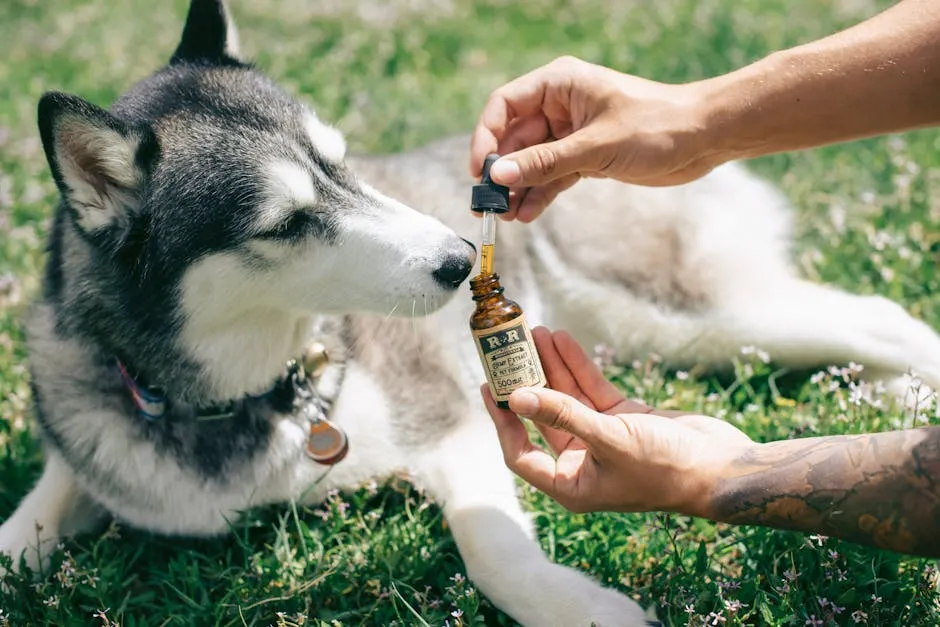
DIY Dental Care Techniques
Creating a homemade dental care routine for your dog can be simple and rewarding. Start by brushing your dog’s teeth regularly. Aim for daily brushing, but two to three times a week is still beneficial. Use a toothbrush designed for pets and a dog-safe toothpaste. This helps remove plaque and prevent tartar buildup.
You can also make your own dental solutions at home. Safe ingredients include Arm & Hammer Baking Soda, Chicken Broth (Swanson Natural Goodness), and raw meaty bones. Coconut oil is known for its antibacterial properties. Baking soda can help neutralize odors and clean teeth gently. Just mix a small amount of these ingredients to create a paste.
Introducing these methods to your dog requires patience. Begin by letting your dog taste the toothpaste. Gradually introduce the toothbrush, allowing them to sniff it first. Once they’re comfortable, gently brush their teeth. Always reward your dog with praise or a treat afterward. This positive reinforcement encourages them to enjoy dental care!
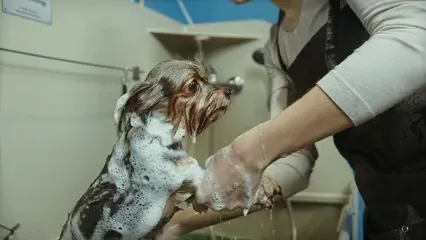
Conclusion
Maintaining dental health for your dog is essential. Regular dental care helps prevent painful conditions and systemic diseases. Incorporating these practices into your routine is a key part of responsible dog ownership. Schedule regular veterinary dental check-ups to ensure your furry friend’s smile stays bright and healthy!
Please let us know what you think about our content by leaving a comment down below!
Thank you for reading till here 🙂
All images from Pexels

